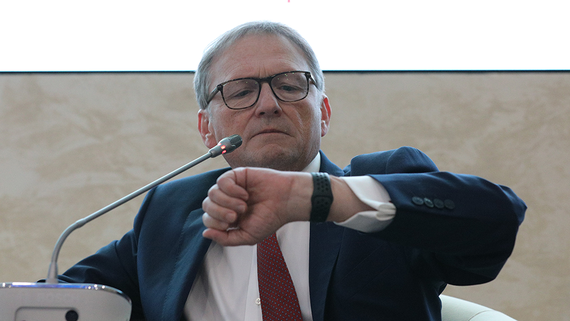Titov called the increase in the key rate a reaction to immediate challenges
[ad_1]

The Central Bank does not create conditions for development, but only responds to momentary challenges; the Russian economy with the current monetary policy will “freeze,” says Boris Titov, the Commissioner under the President of the Russian Federation for the protection of the rights of entrepreneurs.
Thus, Titov in his Telegram channel commented another increase in the key rate. On September 15, the Central Bank increased it by 1 percentage point to 13%.
“Unfortunately, “supply-side economics” still continues to be more a set of inspiring guidelines than a set of real measures. By again raising the key rate (to 13%), the Central Bank confirmed that it is responding to immediate challenges, but is not creating conditions for development,” the business ombudsman wrote.
According to him, the head of the Central Bank, Elvira Nabiullina, indicated that she does not believe in the positive effect on the economy from its saturation with credit investments. She previously stated that “the macro-level constraint is not money, but physical constraints on the available factors of production.” First of all, Titov clarified, we are talking about a labor shortage; this problem needs to be solved, but it is not the “concern” of the regulator.
“But the fact remains a fact. With the current monetary policy, we will freeze, freeze. We must understand this,” the commissioner said.
The increase in the key rate on September 15 was the third in a row in a month and a half: first, the Central Bank raised the rate at a meeting on July 21 by 1 percentage point to 8.5%, and then unscheduledly increased the rate on August 15 immediately to 12%.
In August Titov also warned about the negative consequences of the rate increase, comparing it to a “double dose of antibiotic.” He said that the decision temporarily “puts an end to” the development of the debt market and the emergence of new sources of financing investment projects, and although the new rate will benefit the ruble, “inflation will be fueled from the other side.”
Nabiullina said this week that the Bank of Russia will keep its key rate at an elevated level for “quite a long time.” In the base scenario, by the end of 2023 the rate will be 13.0–13.6%, and in 2024 – 11.5–12.5% per annum, she specified.
[ad_2]
Source link






